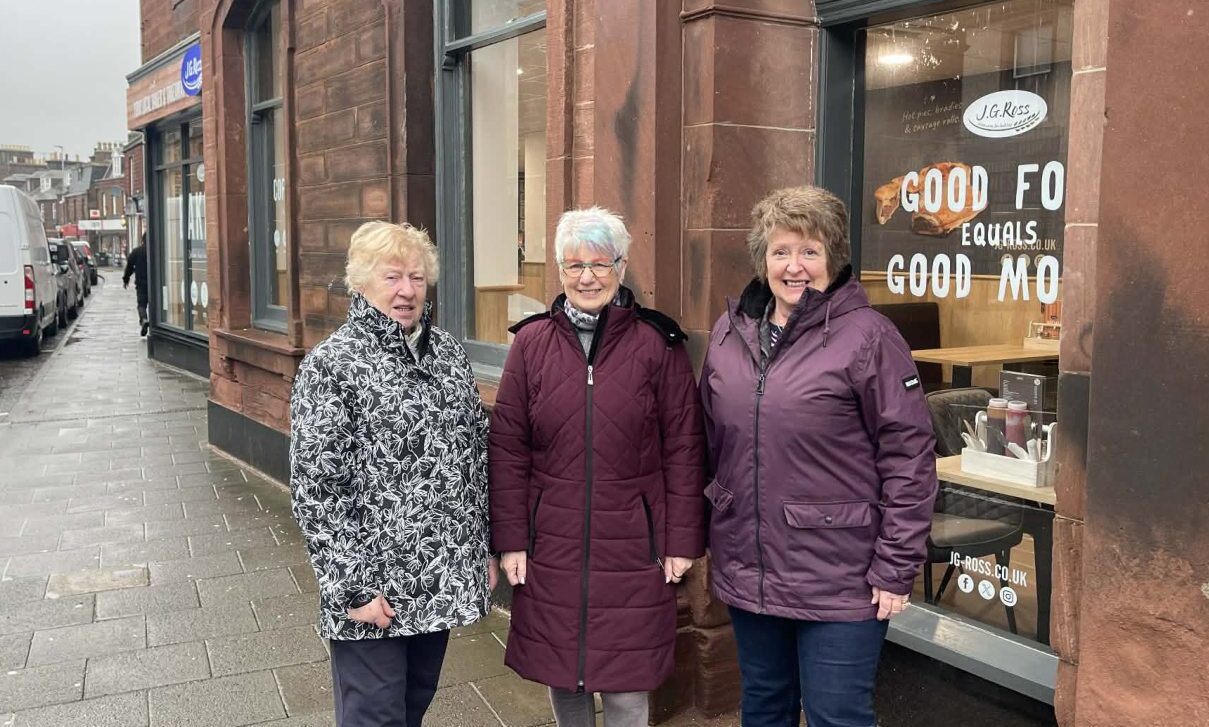‘I went to boarding school, but the idea of sending my own child now makes me sick’
Residential schooling is losing favour as modern families prioritise togetherness and wellbeing, according to new data

Charlotte Sharpe went to boarding school and had assumed her own children would too. But during a tour of a prospective school for her daughter, she walked into a dormitory, saw the familiar row of single beds and knew she couldn’t do it.
“When the kids were at prep school, they tried a bit of flexi-boarding, which they loved because it was like a lovely sleepover with all their best friends. But when we were in that dorm, I just felt sick,” says the mother of three from Sussex. “I could just see the setups, the hierarchy, the bullying.”
Sharpe was eight when she was sent to boarding school – Riddlesworth Hall in Norfolk, alma mater of Princess Diana – because “it was very much what everybody did in my parents’ social group”.
Although she didn’t like it, she kept that to herself because that was what was expected. Even when given the choice at age 11, she carried on boarding because, despite feeling loved by her parents, she had already internalised that “they didn’t really want me at home all the time”.
For Sharpe, a former fund manager in the City, having her children around her was the point. She was, at that stage, a stay-at-home mum and “loved having a relationship” with them. Her husband, who also boarded as a child, felt the same. When the couple asked their children for their schooling preferences, they made it clear that they didn’t want to live away. Instead, they attended Brighton College and Roedean School as day pupils.
Like the Sharpes, an increasing number of UK families appear to be breaking with tradition and choosing not to send their children to boarding school.
Figures from the Independent School Council (ISC) census show that there were 63,035 pupils boarding on the day of the census in January this year, compared with 70,642 a decade earlier – a drop of 11.2 per cent.
Boarders in 2025 make up 11.6 per cent of all pupils in fee-paying schools, down from 14 per cent in 2015. Significantly, the number of overseas pupils in UK private schools has increased and, as they are more likely to board, it suggests that the share of British boarders is indeed shrinking.
Of course, the sheer cost of a boarding school education – made worse by the recent VAT imposition – puts the option beyond the reach of many middle-class families. Senior school fees average £42,459 a year; Eton College charges £63,000.
But cost is not the only concern. Historic child abuse cases still emerging from the sector make for horrifying reading. From Sherborne Preparatory in Dorset to Downside School in Somerset, Ampleforth in North Yorkshire and Edinburgh Academy, children have been sexually assaulted, beaten, humiliated and silenced. In some cases, the initial harm has been compounded by cover-ups.
Ex-boarders are increasingly prepared to speak out about their traumatic experiences. In recent testimony, Charles Spencer, uncle of Princes William and Harry, alleged sexual and physical abuse at the hands of teachers at Maidwell Hall in Northamptonshire, where he was sent at the age of eight.
Then, earlier this month, Jacob Leland, a 37-year-old former teacher at Eton College, was found guilty of three counts of sexual assault on a pupil he taught at the school.
One headmaster, who has worked in and run boarding schools, believes the scandals have undoubtedly had an impact on parents’ perceptions and, in particular, made boarding at a young age less popular.
“When you hear about these things, you think ‘wow’; parents must have changing attitudes in light of this,” says the head, who asked not to be named. “But I think the sector has reacted very rightly and correctly to update itself. There is no complacency at all.”
Barnaby Lenon, who taught at Eton for 12 years and was headmaster of Harrow School from 1999 to 2011, also acknowledges reputational damage.
“I don’t in any way deny that there has been reputational damage,” he says. “There has. But you have to set that against the fact that somebody like me had 40 years, mostly in boarding schools, and had no significant experience of this sort.”
Lenon, a professor and the dean of education at the University of Buckingham, points to buoyant figures for boarding at age 16-plus and insists that while a British boarding education may not suit everybody, it is “the best education that is available probably anywhere in the world”.
The former head says that the level of care in boarding schools has been transformed in his lifetime by a combination of rigorous inspections, a focus on safeguarding and wellbeing and staff who are now “trained in a way they never were”.
And, of course, children have mobile phones and are constantly in touch with their families.
According to support organisation Boarding School Concern, however, framing the issue of abuse as historical is problematic. Prof Alexis Jay’s independent inquiry into child sexual abuse also warns against assuming these risks belong to a different era – a point reinforced by damning evidence heard in the case of Leland, who was a teacher at Eton between 2010 and 2012. (Simon Henderson, Eton’s headmaster, described his former teacher’s behaviour as an “egregious breach of trust” and admitted that testimony from the trial “raises a number of very significant concerns about what happened”.)
Jay’s inquiry concluded: “Even where safeguarding procedures and reporting protocols are extensive, the circumstances in which abusive relationships can develop and the cultural, organisational and geographic blind spots which can facilitate abuse in any boarding school are little different from the past.”
What has changed, however, are our ideas about what constitutes good parenting. According to one boarding school headmaster, “modern cultural expectations of both parents sharing the upbringing of their children” and child-centred approaches are changing attitudes.
In this milieu, sending children off at the age of eight, or even 13, to live in an institution with strangers, however benign, no longer fits with the paradigm.
A father from London whose daughters went to day schools says: “I loved boarding school myself but... I wanted to spend more time with my children than my parents did.”
Alexander Gray, 44, comes from a long line of boarders on his mother’s side and, at age eight, went to Lambrook in Berkshire (the school attended by Princes George and Louis and Princess Charlotte), followed by Harrow.
“Prep school was great for me, although initially I hated it and spent three months crying and not knowing what was going on,” he says.
Gray loved sport and music and threw himself into “anything and everything”. “I now recognise that some of this was to hide the fact that I wasn’t particularly happy and wanted to be at home,” he says. “But you were kept busy the whole time.”
Gray’s children attend the local state school for a variety of reasons, including the cost of boarding and a desire for them to be rooted in their local community. His only doubt about the choice is whether he can ensure they are exposed to the wide range of interests and opportunities that he was offered as a boarder.
Sharpe and her husband also questioned on occasion whether they were doing “the right thing” in not going down the boarding school route. Years later, Charlotte retrained as a psychotherapeutic counsellor, and what she learned confirmed that she had.
According to the 59-year-old, you don’t have to have been abused at boarding school for the experience to take its emotional toll. “For some people, the mere act of being sent away, particularly at a young age, is traumatic,” she says. “Nothing else needs to have happened.”
Chris Braitch, who attended boarding school from age six to 13, points to the internalised damage that the child – and the adult they grow into – carries around.
Ironically, one of the unintended consequences of improved safeguarding in schools is that teachers rarely touch children. “For children at home that doesn’t matter because they get hugs from mum and dad, but for boarding children, the challenge is ‘touch starvation’,” says Braitch, the director of Seen and Heard, a support organisation for ex-boarders.
Another concern Braitch raises is the relentlessness of the boarding school 7am to 9pm regime and the weight of expectations that pupils carry.
Last month, an inquest was held for Georgia Scarff, 16, a boarder at the Royal Hospital School in Suffolk, who was hit by a lorry weeks before the start of her GCSEs in April 2024. It heard that the pupil had found boarding “very difficult”. In an entry in her journal, discovered by her mother in 2020, she wrote that she would rather harm herself than return to school. In the run-up to exams, the teenager had been suffering from anxiety and panic attacks.
Darren Stewart, the coroner, concluded that the school was “not in any way causative” in her death but expressed concern that an initial email her mother had sent about her mental health was not made available to all of her teachers.
Set against this tragic case are examples of former boarders who loved their time at school and think it was the making of them, and parents who believe that boarding offers opportunities that are simply not available elsewhere.
Meanwhile, boarding schools emphasise the move to flexi-boarding. “The drop reported in boarding numbers is an indication of evolving family dynamics, rather than a signal that boarding has lost its appeal,” says David Walker, the director of the Boarding School Association.
“Flexible boarding plans can be adjusted to ensure families enjoy the many benefits of boarding alongside balancing complex patterns of family life.”
For Sharpe, though, the bottom line is that even at the best boarding school in the world, you are in an environment where “you are not loved”.
“The staff might be lovely, lovely people, but you are not there with someone who unconditionally loves you,” she says, “and as a child, that is what you need.”
[Source: Daily Telegraph]




















/file/attachments/orphans/IMG_9103_429753.jpeg)


/file/attachments/orphans/taku-transport_666718.jpg)






























